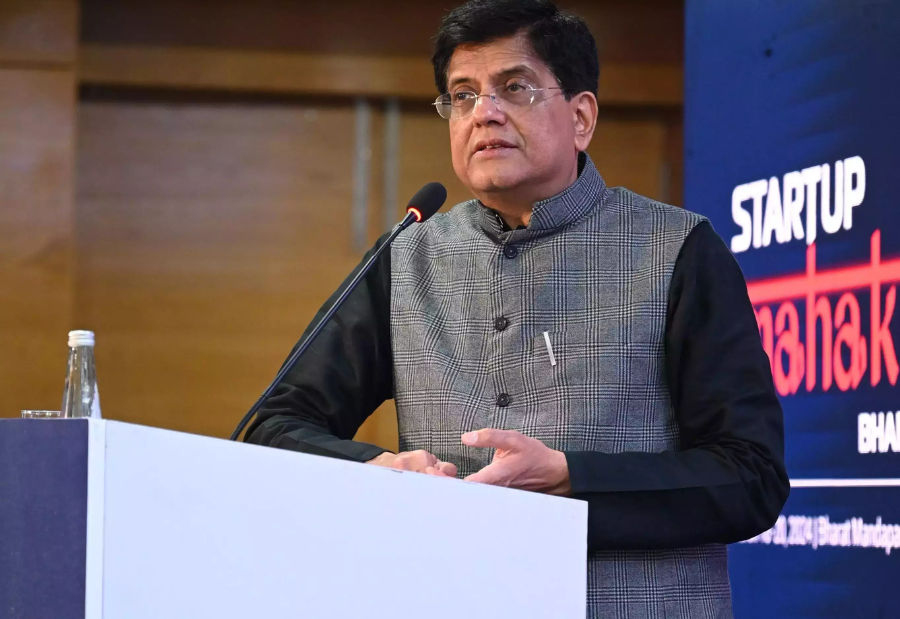India improved its rating from the previous year to 36th out of 170 countries on a worldwide index that gauges a nation’s preparedness for frontier technology, according to a UN report.
India improved from 48th in 2022 to 36th in 2024 on the ‘Readiness for Frontier Technologies’ index, according to the UN Trade and Development’s (UNCTAD) 2025 Technology and Innovation Report.
ICT deployment, skills, R&D activity, industrial capability, and financial accessibility are all included in the index.
India is ranked 70th in finance, 3rd in R&D, 10th in industrial capacity, 113th in skills, and 99th in ICT. More years of education and a higher percentage of high-skilled jobs among their working populations helped Bhutan, India, Morocco, the Republic of Moldova, and Timor-Leste strengthen their human capital positions, according to the research.
According to the survey, developing nations that are excelling in terms of technological preparedness include Brazil, China, India, and the Philippines.
“It might be expected that countries with higher per capita GDP are better prepared for frontier technologies. Overall, this is true but… some countries perform far better than their levels of income may suggest, as indicated by their distance from the regression line of the index score on GDP per capita,” it said.
Developing nations must get ready for a world that is changing quickly due to AI and other cutting-edge technology. The UNCTAD Frontier Technologies Readiness Index is a valuable tool for evaluating a country’s readiness to utilize, adopt, and adapt frontier technologies.’
“Developed countries lead the ranking, but some developing countries, notably Singapore, China, and India, hold prominent positions.”
The United States, China, Germany, India, and the United Kingdom all exhibit scientific prowess in the area of artificial intelligence (AI), according to the research.
With an estimated USD 67 billion in 2023—or 70% of all private investment in AI worldwide—the US leads the globe in this area. China, in second place with USD 7.8 billion, and India, in tenth place with USD 1.4 billion, were the only emerging nations with substantial investments.
According to the paper, artificial intelligence is predicted to become a significant driver of digital transformation and reach a market value of USD 4.8 trillion by 2033.
However, a small number of economies continue to have the majority of access to AI infrastructure and knowledge. Only 100 companies, mostly in the US and China, make about 40% of all corporate R&D expenditures worldwide. AI has the potential to affect 40% of employment globally, increasing productivity but also posing automation and job displacement worries.
AI-driven automation frequently favors capital over labor, which might increase inequality and lessen emerging nations’ competitive advantage of cheap labor.
AI, however, has the potential to empower workers and develop new businesses in addition to displacing employment. According to the research, reskilling, upskilling, and workforce adaption are crucial investments to make sure AI creates more job chances rather than taking them away.
According to the survey, China and the United States have more cloud infrastructure services than the rest of the globe combined when compared to the top 10 economies in terms of major providers; Singapore, India, and Brazil are among the emerging nations on the list.
China and India are the next two countries with the most GitHub developers, behind the United States.
“China and India have the world’s largest populations and, despite relatively low shares, can leverage a significant mass of AI developers, which puts them in favourable positions with respect to AI development and the production of AI-related scientific knowledge,” it said.
According to the survey, Brazil and India also have sizable talent pools, with 4 million and 13 million developers, respectively. These two nations are important contributors to the development of AI and are also among the top producers of GenAI projects on GitHub.
“The lead of India partly reflects government policy. The Government has closely collaborated over the years with the private sector and academia to build centres of excellence,” such as the Indian Institute of Technology Hyderabad and the Indian Institute of Technology Kharagpur in AI, the Kotak Indian Institute of Science Artificial Intelligence-Machine Learning Centre, and the National Association of Software and Service Companies Centre of Excellence in Data Science and AI, the report said.
According to the report, which cited the Competition Commission, the Cabinet approved the India AI Mission in 2024 with the goal of strengthening the AI innovation ecosystem. The mission’s objectives included, among other things, lowering barriers to entry into AI programs and expanding the number of AI courses offered in tertiary education, with a focus on small and medium-sized cities.
“China, Brazil, and India have produced a large pool of AI developers. These illustrate different catch-up trajectories and highlight the importance of policy efforts in order to enhance preparedness in light of the rapid evolution of AI,” the report said.
The report notes that different countries often specialise in particular fields.
This is evident in the revealed technology advantage of a country, which is defined as its share of patents in a particular technology field divided by its share in all fields. Germany is highly specialised in wind energy, India in nanotechnology, Japan in electric vehicles, and the Republic of Korea in 5G technology.
It further said that manufacturing plays a key role in economic development, stimulating growth in different upstream and downstream sectors and generating significant employment opportunities.
“Examples from developing countries such as Brazil, China, and India show how industrialisation can reduce poverty and accelerate economic growth,” it said
Also read: Viksit Workforce for a Viksit Bharat
Do Follow: The Mainstream formerly known as CIO News LinkedIn Account | The Mainstream formerly known as CIO News Facebook | The Mainstream formerly known as CIO News Youtube | The Mainstream formerly known as CIO News Twitter |The Mainstream formerly known as CIO News Whatsapp Channel | The Mainstream formerly known as CIO News Instagram
About us:
The Mainstream formerly known as CIO News is a premier platform dedicated to delivering latest news, updates, and insights from the tech industry. With its strong foundation of intellectual property and thought leadership, the platform is well-positioned to stay ahead of the curve and lead conversations about how technology shapes our world. From its early days as CIO News to its rebranding as The Mainstream on November 28, 2024, it has been expanding its global reach, targeting key markets in the Middle East & Africa, ASEAN, the USA, and the UK. The Mainstream is a vision to put technology at the center of every conversation, inspiring professionals and organizations to embrace the future of tech.




